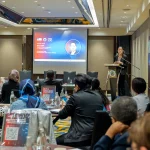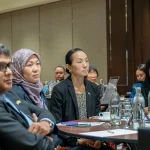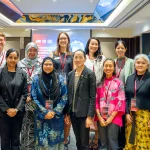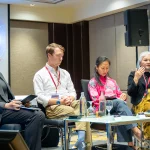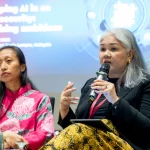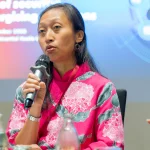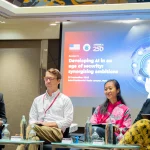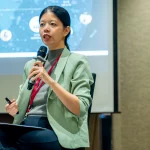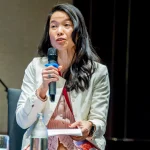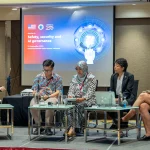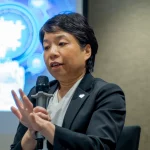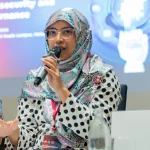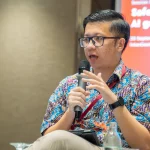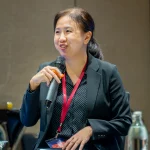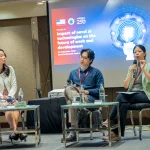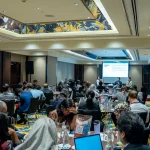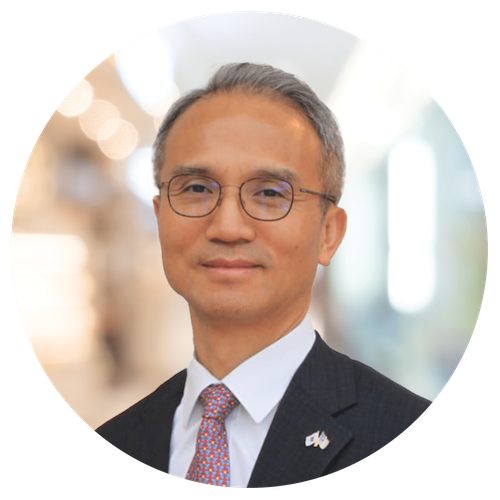International collaborations are necessary for a thriving AI economy, whether it is in the amount of data needed to unlock generative AI use or to unearth the negative implications of AI on society. This is illustrated by the rising number of collaborations between AI safety institutes and digital economy agreements covering AI.
The United States and Malaysia are primed to grow relations through the AI sector. Last year, Nvidia showed interest in Malaysia’s YTL Power International to build supercomputers and train large language models in Malay. Recently, Microsoft announced US$2.2 billion in AI and cloud investment. With such propensity for developments, Malaysia and the US need to explore underlying issues for growth between the two nations, especially to deploy safe, trustworthy, interoperable and responsible AI.
This programme encourages frank discussions on AI, whether addressing economic security policies, seeking collaborations through AI stacks or information exchanges on addressing harms from its socio-technical nature. It intends to convene academia, private sector and the government to untangle challenges with the algorithm. Output of the programme should result in a list of recommendations to strengthen Malaysia-US relations from AI engagements.
This session aims to discuss potential synergies with technology ambitions, especially amid security, competition and ongoing developments along the AI value chain. The session kicks off conversations with a panel on geopolitics and trade elaborating a current issue regarding AI.
The US and Malaysia are both on the trajectory to tap into AI as the next catalyst of development and economic ambitions. With Asia and the US’ AI market size projected to reach a market volume of US$86 billion and US$91 billion respectively in 2025, a further US$354 billion (Statista estimates for 2031) waits for synergy, especially in the development of AI. However, security considerations could impact on AI ambitions. Cybersecurity challenges could affect data management practices and intellectual property partnerships, which could hamper cross-border innovation activities. Meanwhile, competition could draw both the US and Malaysia in diverging directions, whether the focus is adoption or technological dominance.
- How could Malaysia and the US navigate competition in AI development to gain from the AI market? What are areas for synergy between Malaysia and US in the value chain and technological stack?
- What is technology leadership and dominance in the age of AI and security?
- Could there be shared assurances and partnerships amid global and regional competition?
- What are economic and diplomatic tools available to strengthen partnership while navigating potential divergences?
Moderator:
Nabila Hussain
Head of Southeast Asia Public Policy
Cloudflare
Speakers:
Kit Conklin
Non-resident Senior Fellow
GeoTech Centre
Atlantic Council
Elina Noor
Senior Fellow
Asia Programme
Carnegie Endowment for International Peace
United States
Shamsul Majid
Head
National AI Office
Tina Jamaluddin
Chief Country Representative for Malaysia
US-ASEAN Business Council
This session aims to promote knowledge transfers addressing AI’s impact on the workforce. It will attempt to answer key questions on trade-offs for AI transformation and how its impacts can be mitigated. The target audience are those concerned with economic, labour and national development issues.
The rapid development of AI technologies, particularly generative AI and large language models have reignited concerns about the future of work across both emerging and developed countries. For workers, concerns are raised about its potential to displace, augment or change jobs across industries. On a broader scale, AI technologies could exacerbate inequality by increasing the capital share of growth and disrupting traditional development pathways for emerging economies. This session will explore the impacts of AI in emerging and industrialised economies.
- What are the labour market and developmental impacts of AI technologies?
- How can countries respond domestically and through collaboration?
- What role do regional and international frameworks play in addressing these challenges?
Moderator:
Ren Bin Lee Dixon
Research Fellow
Centre for AI and Digital Policy
Speakers:
Chua Pei Ying
Head Economist for Asia-Pacific
LinkedIn
Singapore
Calvin Cheng
Director of Economics Trade and Regional Integration
ISIS Malaysia
This session aims to discuss national security and AI safety governance. Discussions should identify Malaysia’s concerns with AI adoption while teasing out collaborative efforts with other governments. The target audience are those working on AI safety, security and harmonised governance issues.
AI adoption is expected to transform industries and societies. With use cases spanning facial recognition in livestock to incorporating AI in autonomous weapon systems, its usage has implications for responsibility, safety and security. The rapid development of AI technologies, particularly generative AI and LLMs have introduced socio-technical challenges and harms. While some nations have harm repositories, others are grappling with mapping AI’s impact on sectors.
- As governance grapple with building guardrails and standards, could Malaysia and the US ensure safer deployment of transborder technologies like AI?
- Could there be greater synergy between the US and Malaysia to mitigate harms arising from the adoption and deployment of AI?
Moderator:
Dr Jun-E Tan
Senior Research Associate
Khazanah Research Institute
Speakers:
Calvin Woo
Director
MyDIGITAL Centre4IR
Siti Liyana Azman
Data Privacy Specialist
GX Bank
Adilah Junid
Director of Legal and Government Affairs
Microsoft
Mia Hoffman
Research Fellow
Centre for Security and Emerging Technology
United States
| Date | 23 September 2025 |
| Time | 0900-1515 |
| Venue | Intercontinental Kuala Lumpur |





